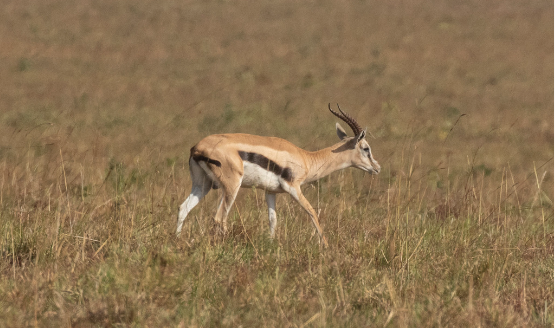Wildlife authorities in Western Bahr el Ghazal State are holding a soldier suspected of killing 3 gazelles and 4 small antelopes known as dik-diks in Jur River County.
According to the state wildlife service spokesperson, Col. Amoto Pacifico, the suspect was arrested on Wednesday at the Jur River Bridge while carrying game meat to sell in the town.
Addressing the media on Friday at wildlife service headquarters in Wau, Col. Amoto said the killing of wild animals is forbidden and punishable by the law in accordance with South Sudan’s Wildlife Act 2006.
“Anybody who kills this small dik-dik (antelope) is sentenced to 3 years in prison and killing the other one (gazelle) which is the symbol of the state may lead to a death sentence because they are very few and there is a need to protect them,” he said. “Any of the animals which are symbols, starting with the eagle, will lead to a death sentence.”
“I am telling the citizens of Western Bahr el Ghazal State not to target and kill the symbol of the state for economic purposes because you can still do business in other ways,” he added.
Col. Amoto said the wildlife service has a responsibility to protect the wildlife in the country and that they earn revenue for the country through tourism.
Meanwhile, the state director of the wildlife service, Major General Mawut Wel Yuol, said the suspect will be arraigned in court.
“The person who killed these animals is around here and is a soldier and it is something that a soldier should not do,” Gen. Wel said. “We are going to open cases against him with the prosecutor and he will be taken to court.”
Since May this year, wildlife authorities in the state said over 500 wild animals have been killed in the areas of Jur River and Wau County by poachers.




